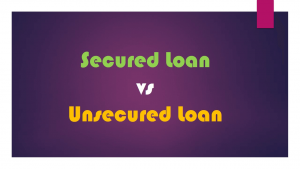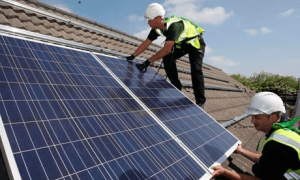Solar Loans
Converting to solar energy is a step that all countries want to take, and most have already made steps in the direction of relying on renewable energy instead of petrol, gas, and coal.
A huge part of this, on the economic side of things, is providing the funds needed to install and run solar panels, and that’s where solar pool loans come in. Continue reading to learn everything you need to know about solar panel loans.
What Is a Solar Loan?

Drawing from our experience, a solar loan is the type of loan that is provided for customers who want to install solar panels to depend on renewable energy.
These are facilitated by banks, credit unions, and financial institutions to encourage people to run on eco-friendly energy as well as make a profit for themselves.
Is It Better to Lease or Buy a Solar Panel System?
When you’re trying to decide between buying and leasing, you should consider why you’re going for solar panels in the first place.
If the motivation is to maximise savings or financial returns with the help of your solar energy system, then you should definitely buy the system.
On the other hand, if you’re simply looking for a way to cut down on energy costs from a maintenance-free source while sustaining the environment, then leasing is the better option for you.
What Is a Secured Solar Loan and What’s an Unsecured One?

As indicated by our tests, the main difference between each type of solar loan is that the secured one requires you to provide collateral, which is usually your house, as a guarantee for the lender that they’ll be getting their money back, even if you default or don’t repay your bike loan.
On the other hand, an unsecured loan doesn’t put your personal belongings up for grabs if things should go south. However, unsecured loans do come with much higher interest rates to compensate for the risk that the lender has to take when they give out the money with no collateral.
How to Choose a Solar Loan?
Sometimes, the best route is to add your solar panel system cost to a home loan as mortgages tend to have the lowest interest rate available for loans, which reduces your loan’s total cost in the long run. In other words, you’ll potentially lower your interest rate from 12% down to only 3 or 4%.
However, the only trick with this calculation is that if your mortgage extends over 25 years, you could end up paying twice as much for your solar panel installation as you would if you hadn’t paid it with mortgage repayments.
So, it all depends on whether the total cost of phone loans is less than or more than your short term solar loan.
Also, it’s essential to understand that the longer the term of your solar panel loan is, the more interest you’d have to pay in total due to the accumulation over time.
So, while opting for lower monthly instalments might seem appealing and easier to get on top of, it might not be the most cost-efficient in the long run.
Still, you don’t want to just opt for the shortest period as the payments on the wedding loans of shorter terms may end up exceeding your savings for the monthly utility bill.
So, the best thing to do is to opt for the monthly instalment that is equivalent to your energy savings for each month to repay the loan as fast as possible with the least amount of accumulated interest.
Do Solar Installation Companies Offer Solar Panel Loans?

Our findings show that, many solar panel installation companies provide the types of mortgage loans in Australia or payment plans to facilitate the process for customers. Yet, not all of them do that, and the ones that do often provide unsecured truck loans for bad credit Australia with high interest rates or plenty of hidden fees.
Make sure to read all of the information you’re handed when you apply for a solar loan through an installation company, as it’s not often the company but a third-party that is actually providing you with the loan.
This means that you have to go through both the terms and conditions of your installer and of the lending entity that’s providing you with the necessary funding.
Is There a Government-supported Solar Loan?
If you’re looking to play it safe, you might want to opt for the Solar Victoria engagement ring loan that’s provided by DELWP (Department of Environment, Land, Water, and Planning) under State Trustees’ administration on behalf of DELWP.
With Solar Victoria, you won’t have to pay an up-front amount on the modelled price of the standard 4-kW solar panel system.
This unsecured loan requires no collateral, but it needs the landlord’s application for rebates and loan. So, if you’re a tenant, you’ll have to set up a deal with your landlord to work the situation out.
The great thing about loans for medical procedures is that even people with limited income and pensioners can apply for it as there’s no minimum income threshold.
Borrowers who find themselves unable to make the repayments can apply for hardship benefits. In this case, the entity responsible will start assessing your financial situation to manage your money to meet the repayment amounts.
All you have to do is send a request, and after approval, you’ll have 6 months to start installing your solar panel system before the breast implant loan approval period expires.
Final Thoughts
When deciding on a solar panel weekend loans no credit check, consider whether you want a government-backed one, a secured or unsecured one, and the amount you can pay monthly on bills from your energy savings.
Once you have those tackled, you can proceed to make the optimum decision for your home.